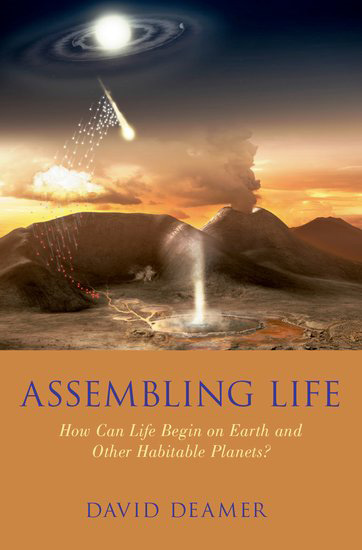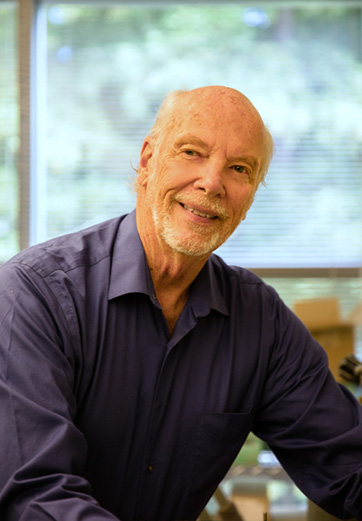Campus News
New book by biochemist David Deamer explores the origins of life
‘Assembling Life’ proposes a novel theory, based on Deamer’s research, of how life can begin on Earth and other planets.


In his new book, Assembling Life, David Deamer challenges the consensus that life began in the ocean and presents an alternative scenario, based on his research, in which life began in freshwater hot springs.
Deamer, a research professor of biomolecular engineering at UC Santa Cruz, has been studying the origins of life since the early 1980s. Assembling Life (Oxford University Press, 2019) explores how life can begin on Earth and other habitable planets.
Since the discovery of deep-sea hydrothermal vents and the unusual forms of life inhabiting them, many researchers have focused on those environments as a likely site for the origin of life on Earth. But Deamer’s research suggests there are significant problems with the notion that life began in salty seawater.
“We have proposed an alternative, which is that life began in freshwater hot springs associated with volcanic land masses that emerged from a global ocean around 4 billion years ago,” Deamer said.
According to Deamer, the hot springs environment provides several important properties. Organic compounds delivered to Earth’s surface by meteorites could accumulate in small pools and ponds. As water evaporates from those pools, a film of extremely concentrated compounds would form on the mineral surfaces.
“If the compounds can react, this is where it happens,” Deamer said. “We have shown, both in the laboratory and in field experiments, that RNA-like polymers are synthesized from mononucleotides under these conditions. Furthermore, if lipids are present, the polymers become encapsulated to form microscopic protocells.”
Multiple cycles of wetting and drying give the “protocells” an opportunity to become ever more complex, he said, and eventually they begin to evolve. Deamer and his colleagues have built an experimental system in his laboratory to simulate the wet-dry cycles of volcanic hot springs, and they have also conducted experiments at volcanic sites around the world, including Hawaii, Iceland, Kamchatka (in eastern Russia), New Zealand, and California’s Mount Lassen.
“To my knowledge, no one else working on the origin of life has ventured out of the lab to see if their experiments actually work in conditions like those of the prebiotic Earth, but that’s what we are doing,” Deamer said.
His findings are relevant not only to understanding life on Earth, but also to the search for life on other planets. For example, evidence for the existence of oceans beneath the icy surfaces of Saturn’s moon Enceladus and Jupiter’s moon Europa have led to speculation that there may be life in those subsurface oceans. According to Deamer, however, the absence of volcanic activity and wet-dry cycles makes this unlikely.
Mars, however, is a different story. “We predict that over 3 billion years ago, Mars did have seas and volcanoes, just like Earth at that time. If life could begin on Earth, it could also have begun on Mars,” he said.
Assembling Life is Deamer’s second book on the origins of life, expanding on ideas he introduced in First Life, published by UC Press in 2011. He served as the president of the International Society for the Study of the Origin of Life from 2011 to 2014.